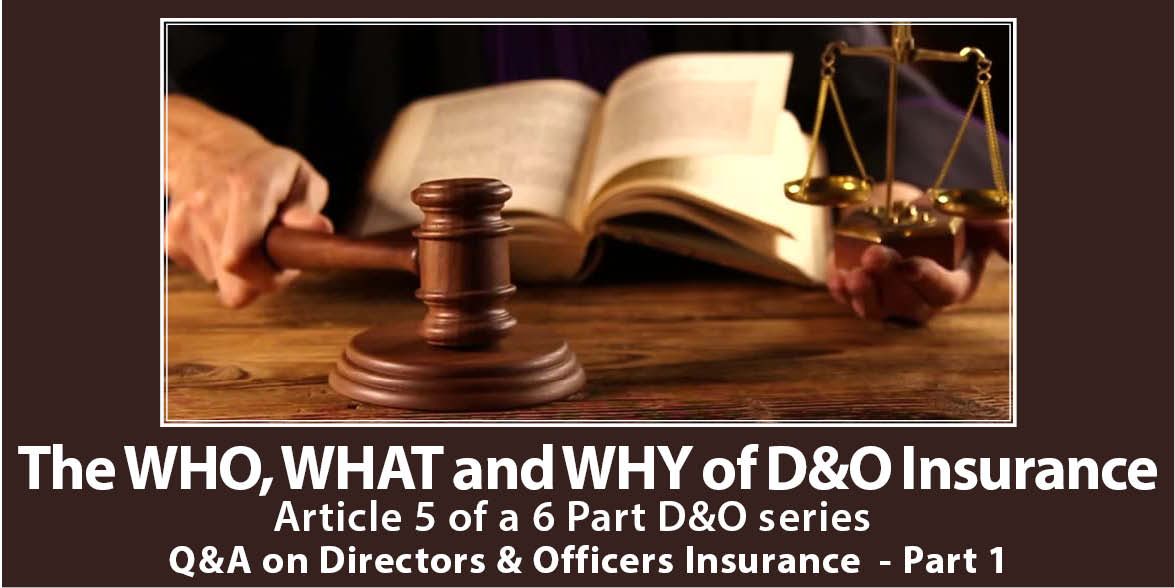
In part 1 – 4 on the D&O series we explored:
- The Who: Director and Officer
- The What: Expected Director behaviors
- The Why: Is what we set out to explore in the final two articles
One of the risk reduction methods is an effective Directors and Officers insurance policy.
What does D&O Liability Insurance cover?
D&O insurance protects the personal assets of a company’s Directors and Officers, as well as that of the company itself. D&O insurance covers legal defense costs, settlements and awards when defending Directors and Officers from a valid claim.
Are Directors and Officers protected by the company if they are sued?
The company’s Memorandum of Incorporation may or may not allow a company to indemnify its Directors and Officers. There is no guarantee however that the company will pay the heavy financial burden of defense costs in lengthy legal proceedings or damages awards. The company may also not have the financial resources to indemnify the Directors and Officers in the event of a claim.
Are a company’s subsidiaries covered under the D&O policy?
Yes, subsidiary boards are covered. There is also provision for automatic inclusion of newly acquired or created companies; however, the Insurer would have to be notified of these.
The D&O policy does not cover fraudulent acts, how will a director defend a fictitious claim?
The D&O policy provides defense costs and the Insurers will decide whether to defend the Director in court. Therefore, the Director will not have to pay for expensive legal encounters which may be drawn out for many years. Should the case be defended successfully, the Director would not sustain any personal loss. However, if it is found that the Director acted fraudulently, the Insurers will subrogate (look to the defended but guilty party for compensation of costs).
Why should private companies purchase D&O insurance?
The costs of defending legal actions may exceed the net worth of the company’s assets. A judgement against a Director of a private company could lead to major financial losses. Complicated conflicts of interest could arise due to the entwined responsibilities which exist in private companies.
Who are the typical claimants on D&O policies?
There are numerous examples of D&O claims and these are growing as Director liability is expanding. The following are a few known examples: shareholders, investors, customers, consumer groups, competitors, unions, contractors and government.
In our final article in this series, we will answer a few more common questions.
Glossary;
Shareholder activism: D&O litigation is on the rise around the world, reflecting a global trend towards personal executive culpability and increasingly stringent regulation